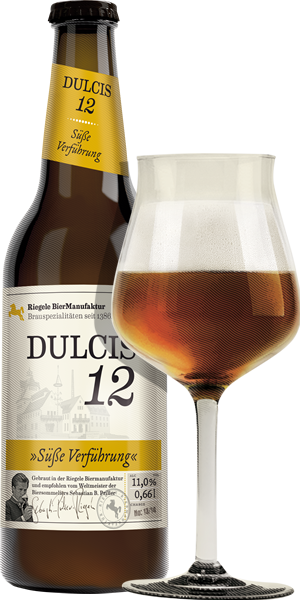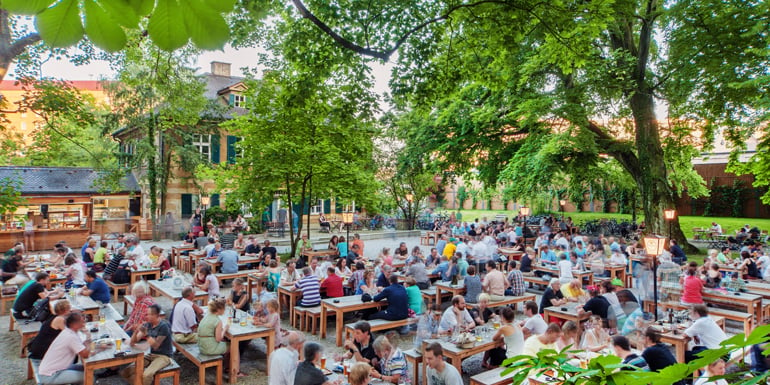Start 14-Day Trial Subscription
*No credit card required

Sebastian Priller-Riegele of Brauhaus Riegele
Germany's Brauhaus Riegele holds the distinction as one of the world's oldest businesses, tracing its operations back to 1386. At 631 years of age, its brewing tradition is older than the Reinheitsgebot, which celebrated its 500th anniversary last year.
Riegele's enduring legacy has carried into 2017. This year it won one of Europe’s largest and most prestigious, blind tastings, was named “2017 German Craft Brewery of the Year” and more recently, won the “2017 German Brewery of the Year” from the German Federal Ministry of Food and Agriculture. This recognition is the result of the brewery’s dedication to both traditional Bavarian and non-traditional beers, the balance of which has long been a point of contention in Bavaria.
The debate has extended from one of culture to politics and economics – Germany's dedication to tradition has contributed to stagnant beer sales while more forward-thinking countries race ahead. Is remaining true to one's heritage worth falling behind in a growth industry?
Sebastian Priller-Riegele is the 28th generation brewer, World Champion Beer Sommelier and international beer judge at the helm of Riegele, and an outspoken proponent of marrying tradition with modernity. The Beer Connoisseur spoke with Priller-Riegele about his unique position as a representative of centuries of brewing heritage and his decision to move forward.
What is it like growing up in a family with a long brewing tradition?
It’s just fantastic! Beer is always emotional – regardless of your age, and especially in Bavaria. Growing up in a brewing tradition intensifies these emotions. I tried my first ‘beer-foam’ at the age of five and it was a point of pride. The more time you spend around beer and brewing culture, the more you realize it is more than a drink. It's a philosophy.
Riegele is one of the oldest breweries and companies in the world. Can you talk about the challenges of balancing tradition with modernization?
In my eyes, this is easy: keep up traditional values but proceed with modern technological improvements. Or in other words: don’t try to satisfy the modern ‘who-cares’ attitude with old technical equipment. We strictly follow our seven core values: great freedom, personal responsibility, highest quality, wide variety, clean environment, great tradition and local charity. This is who we are and how we have acted since 1386!
Where do you and Riegele stand with regards to the Reinheitsgebot?
All our traditional beers, like our festival or pilsner are brewed strictly according to the Reinheitsgebot. This is and will remain the core of our tradition. New, upcoming beer styles like IPAs are brewed with the necessary modern brewing processes like dry hopping, which is not strictly compatible with the Reinheitsgebot. In this case we have defined our own Natürlichkeitsgebot, meaning that only pure natural ingredients will be applied and are allowed in our brewery.
When was the decision made to brew non-traditional beers, and what challenges emerged?
As you know, beer is not just my profession, it is also my greatest hobby. That’s why I was travelling around the world checking out other breweries, tasting new beer styles and meeting other brewers. We started to experiment with non-traditional beers around 2010 as a result of what I saw. I'm glad that we did so.
Riegele's Natürlichkeitsgebot has led to a line of "Specialty Beers" which pay homage to brewing styles from around the world. The 11% ABV Dulcis 12 is brewed with Trappist yeast and a honey addition before undergoing a second, 12-month fermentation. The brewery has also brewed non-alcoholic IPAs (Liberis 2 and 3), and American craft-inspired brews such as Bavarian Ale 2, a tropical, fruity pale ale in collaboration with Sierra Nevada.
Over the years, what has stayed the same for Riegele, and what has been changed or updated?
Quality first, since the beginning. But what makes the difference between a good and a fantastic beer? In my eyes perfect quality of raw ingredients is just the basis. What really make the difference and are the most important ingredients of beer are passion, dedication and knowledge. This has always been the same, but you have to update your outlook to reflect the times and live it every day!
What are you proudest of when it comes to running Brauhaus Riegele?
Our team. I am really proud of our brewery and everybody working in the brewery – our extended family. It’s the family spirit that makes me feel that this is what I should be doing.
Has American craft brewing culture affected decisions you have made at Riegele?
Of course! We need to learn from each other. This is valid for us and vice versa. What do we have to offer? Maybe a different economical thinking: We don’t think in shareholder value, we think in generations. And believe me, this affects your decision-making.
Is there anything else you'd like to add?
Never forget our philosophy… it’s a beautiful life!

The Biergarten at Brauhaus Riegele.
Photos courtesy Brauhaus Riegele.




Comments